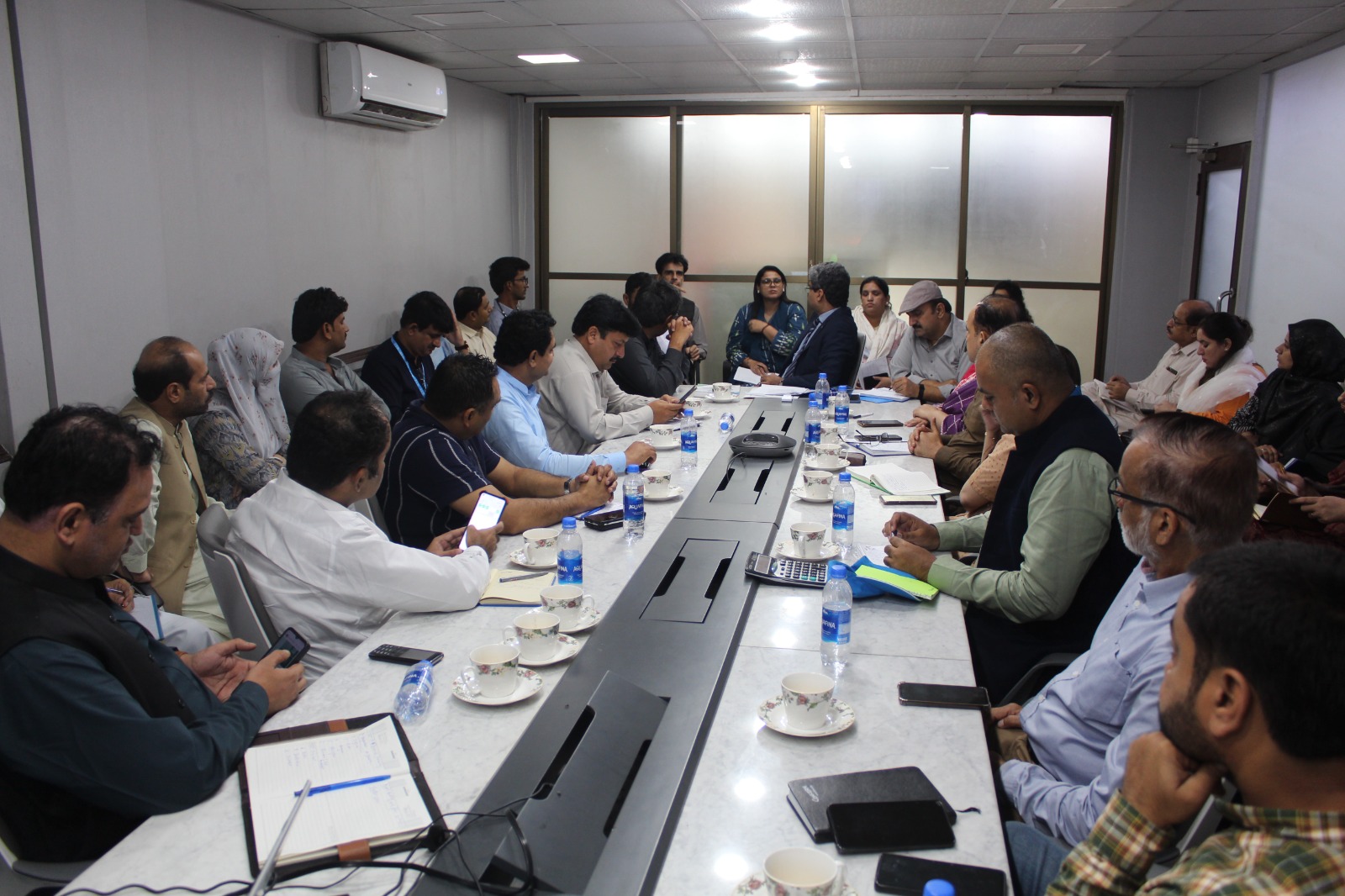Karachi: September 6, 2024: Imdad Hussain Siddiqi, Director of Operations at the Provincial Disaster Management Authority (PDMA) Sindh, led a high-level meeting with humanitarian stakeholders to address the extensive damage caused by floods in Sindh.
The meeting, held at the PDMA Sindh conference hall, was attended by UN agencies representatives and various international, national non-governmental organizations, including UNHCR, UNICEF, CESVI, ACTED, WFP, WHO, IRC, the Aga Khan Agency for Habitat Pakistan, UN FAO, IMC, Hands, FRDP, IRADO, and others.
He said that the primary focus of the meeting was to coordinate efforts across the flood-affected districts of Mirpurkhas, Sanghar, Badin, Matiari, Khairpur, Qambar Shahdadkot, Sajawal, Dadu, Jacobabad, and Umerkot. He said that the aim is to tackle pressing issues in health, education, water, sanitation, and dewatering.
Director Siddiqi emphasized the urgency of addressing the severe impact on Union Councils and highlighted the critical need for dewatering in areas with stagnant water affecting schools and health facilities.
He outlined the current situation related to initial assessment sent by concerned DCs, reporting that from July 1, 2024, to September 5, 2024, floods have resulted in 73 fatalities, 153 injuries, the loss of 932 livestock, and significant damage to homes and crops. The floods have also displaced 141,601 people and led to the establishment of 163 relief camps and 40 medical camps. He said that 327 houses partials and 198 full houses were damages in rain.
To date, relief efforts have included the vaccination of 6,906,302 animals, the evacuation of 5,085 individuals, and the supply of 229 heavy-duty dewatering pumps to District Disaster Management Authorities (DDMAs). He said that the stock of relief items is substantial, with tents, tarpaulin sheets, mosquito nets, blankets, and hygiene kits distributed across Karachi, Jamshoro, and Sukkur warehouses.
Director Siddiqi drew attention to the current flood situation at the Gudu, Sukkur, and Kotri barrages, with Kotri experiencing a medium flood.
He urged humanitarian partners to explore innovative solutions, such as researching sky-lightening to mitigate future casualties.
Additionally, he reported that 21 breaches in canals and embankments have been repaired, and highlighted the severe impact on education and agriculture, with over 230,000 students affected and 325,245 acres of crops damaged in the rains in Sindh.
In response to these challenges, Director Siddiqi called for a collaborative approach with DDMAs and District Commissioners to address the needs of affected populations in the ten priority districts. He also stressed the importance of coordinating with local authorities to ensure effective relief and rehabilitation efforts.
The meeting concluded with a call to action for all partners to work together in addressing the flood’s aftermath, focusing on health, education, and water and sanitation needs. Mr Shayan Shah Deputy Director Operations PDMA Sindh suggested the forum that the work should be carried out by the partners with the consent of DCs in the different sectors.
On the occasion the provincial’s heads of UN agencies, INGOs, National NGOs including representatives of WHH, UNOCHA, IRC, UNICEF, UNICEF, discussed on health, educations and wash issues in flood hit areas.



Comments are closed.